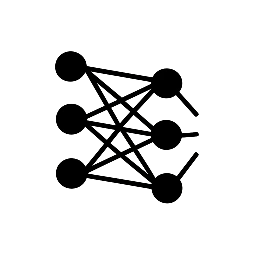Demotivator of the Day:
So you’re learning to play an instrument and planning to start a band? Hmm… how should I put this… and why?
Not long ago, a mysterious artist known as Velvet Sundown surfaced on Spotify. What makes this group peculiar is that no members are listed, and many speculate that the music might be AI-generated. While nothing has been confirmed, no one has come forward as the creator, leading some to believe it could be an experiment by Spotify itself to gauge public reaction.

The music falls under the soft rock genre reminiscent of the 1970s—a time when music was still deeply human. Despite the ambiguity, Velvet Sundown now garners nearly half a million monthly listeners on Spotify. Their most notable track, “Dust on the Wind” (notably using “on” instead of “in” like the classic original), has captivated many.
Digging Deeper
Curious, I decided to dig deeper. Enter Rick Beato, a music producer and educator who analyzes suspected AI-generated songs by breaking them down instrument by instrument and identifying digital “fingerprints” or anomalies. You can watch his analysis here:
🔗 Rick Beato on Velvet Sundown
You can also listen to “Dust on the Wind” yourself:
🔗 Velvet Sundown – Dust on the Wind
The AI Music Phenomenon
Velvet Sundown isn’t alone in the realm of mysterious AI-generated or AI-assisted music. Over the past few years, several similar cases have emerged, raising questions about creativity, authorship, and the future of music production. AI music generators like OpenAI’s Jukebox, AIVA, and Soundraw have demonstrated that machines can create compositions in various styles, often indistinguishable from human-created music.
What makes Velvet Sundown particularly fascinating is how it mimics a specific era with such authenticity. The 70s soft rock style, complete with period-appropriate instrumentation and production techniques, suggests a sophisticated level of AI programming or an exceptionally talented human deliberately maintaining anonymity.
The Ethics of AI Music
The rise of AI-generated music raises important ethical questions. Should AI-created music be clearly labeled as such? How should royalties be distributed when no human artist exists? These questions are becoming increasingly relevant as AI music becomes more prevalent.
Some argue that AI music democratizes creativity, allowing those without formal musical training to express themselves through composition. Others worry about the potential loss of human creativity and the devaluation of artistic skills developed over years of practice.
Resources for Exploring AI Music
If you’re fascinated by the intersection of AI and music, here are some resources to explore:
- AI Music Generation Tools:
- OpenAI’s Jukebox – A neural network that generates music, including rudimentary singing
- AIVA – An AI composer that creates emotional soundtrack music
- Soundraw – AI music generator for content creators
- Analysis and Discussion:
- Rick Beato’s YouTube Channel – Features numerous videos analyzing AI-generated music
- Music Tech – Articles on the latest developments in AI music technology
- The Verge – AI Music Archives – Coverage of AI’s impact on music and other creative fields
- Academic and Technical Resources:
- Google’s Magenta Project – Open source research project exploring the role of machine learning in art and music creation
- MIT Media Lab – Opera of the Future – Research group exploring the future of music performance and creation
- Communities and Forums:
- r/AIMusic on Reddit – Community for sharing and discussing AI-generated music
- AI Music Facebook Group – Community for AI music enthusiasts
What do you think about AI-generated music? Is it a threat to human creativity or a tool that expands artistic possibilities? Share your thoughts in the comments below.

Leave a Reply